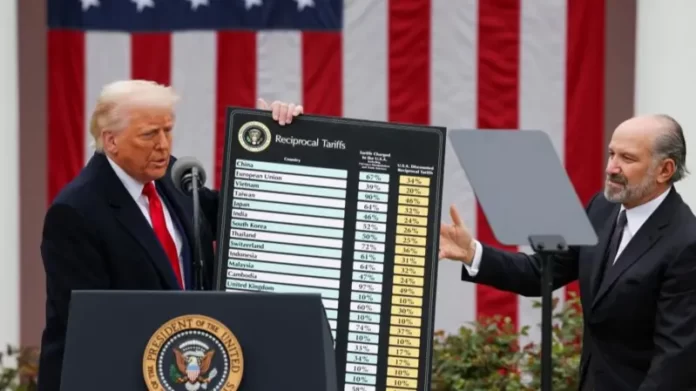The state of California filed a federal lawsuit on Wednesday aiming to block President Donald Trump’s sweeping new tariffs, arguing the measures overstep presidential authority and risk devastating the U.S. and California economies.
The legal challenge, filed in San Francisco federal court by Governor Gavin Newsom and Attorney General Rob Bonta, contends that Trump’s use of the International Emergency Economic Powers Act (IEEPA) to justify the tariffs is unconstitutional. The state argues the law does not give the president the authority to impose broad trade restrictions or taxes without congressional approval.
“President Trump’s new tariff regime has already had devastating impacts on the economy, creating chaos in the stock and bond markets, wiping out hundreds of billions of dollars in market capitalization in hours, chilling investment, and threatening to push the country into recession,” the lawsuit states.
Trump recently imposed a 10% blanket tariff on goods from all countries and a 145% tariff on Chinese imports, with exceptions for certain electronics. While some measures have been paused for 90 days, the administration insists they are necessary to combat what it calls a national emergency—specifically, the U.S. trade deficit and weakening manufacturing sector.
In response, China retaliated with a 125% tariff on U.S. goods, and the European Union has also approved retaliatory measures, though those are currently on hold.
California, the largest U.S. importer and the world’s fifth-largest economy, argues it is disproportionately impacted. The state warns that the tariffs could harm its 12 major ports, which handle 40% of all U.S. imports, and could threaten agricultural exports—worth $23.6 billion in 2022—due to retaliatory foreign tariffs.
Thousands of jobs are at stake, the lawsuit claims.
The White House, however, defended the tariffs. Spokesman Kush Desai criticized Governor Newsom, saying, “He should focus on addressing crime, homelessness, and high prices in his state instead of trying to block Trump’s tariffs.” Desai emphasized the administration’s commitment to “using every tool” to combat economic threats, including tariffs and negotiations.
The lawsuit joins three other legal challenges already filed across the U.S., including suits in New York, Florida, and Montana. One notable case involves members of the Blackfeet Nation, who argue that tariffs on Canadian goods disrupt tribal trade across the U.S.-Canada border.
As Trump doubles down on a hardline trade stance in the name of national security, the battle over the legality and economic consequences of his tariff regime is now headed to the courts.




